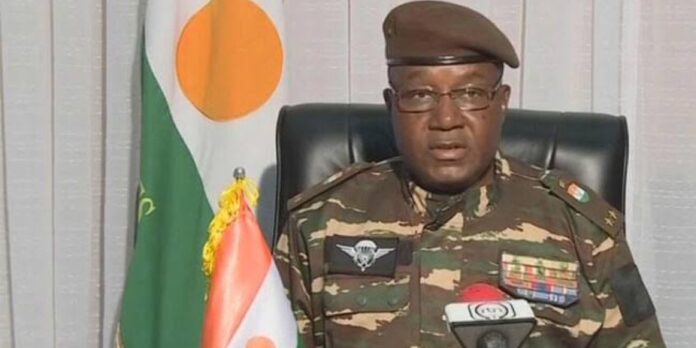In a bold rebuttal to accusations made by the ruling junta in Niger, the Armed Forces of Côte d’Ivoire have firmly denied claims that they are supporting terrorist groups to destabilize the Nigerien government. These claims, made by General Abdourahamane Tchiani, the head of the military junta in Niger, have been dismissed as “baseless” and “without evidence.”
The controversy erupted after Tchiani, in an interview broadcast on Nigerien state television, accused Côte d’Ivoire of training Nigerien irredentist groups, which allegedly have taken refuge in the Ivorian territory. According to the Nigerien junta leader, the aim of this alleged training would be to weaken and overthrow the power structure in Niger, which was established after the military coup of July 26, 2023.
In a statement released on Saturday, General Lassina Doumbia, Chief of Defence Staff of Côte d’Ivoire, refuted the allegations, calling them “untruths” that should be clarified to avoid creating doubts in the region. Doumbia emphasized that the Armed Forces of Côte d’Ivoire remain focused on national security, with no involvement in any foreign destabilization efforts.
“The seriousness of the accusations and the platform on which they were made require a prompt and clear response,” Doumbia said in the statement. “The Armed Forces of Côte d’Ivoire oppose these unfounded accusations that lack any proof. Our primary responsibility is the defense of our nation and the security of our people.”
Doumbia also reaffirmed Côte d’Ivoire’s commitment to regional cooperation, highlighting the country’s long-standing efforts to foster peace and stability across West Africa. “We remain dedicated to our role in promoting peace and security in the region, in line with our tradition of cooperation with our neighbors,” he said.
The Ivorian defense chief did not shy away from addressing the core of the accusations, stressing that the Nigerien authorities should instead focus on resolving their internal security issues, which, according to Doumbia, remain unresolved. He urged the Nigerien military leadership to shift their attention to addressing the challenges posed by internal instability, rather than pointing fingers at external actors without valid grounds.
The accusations from the Nigerien junta come amidst an increasingly volatile political situation in Niger. Following the 2023 coup that ousted the elected government of President Mohamed Bazoum, Niger has faced a series of internal challenges, including clashes with militant groups, the weakening of government authority, and growing tensions with international partners, particularly France and neighboring countries.
The Ivorian statement comes as a diplomatic blow to the Nigerien junta, which has already faced criticism from the international community over its actions. Côte d’Ivoire, one of the more stable countries in the region, has consistently called for peaceful resolutions to conflicts and the restoration of democratic governance in countries experiencing military coups, such as Niger, Mali, and Burkina Faso.
The Allegations and Their Context
General Abdourahamane Tchiani’s remarks have fueled speculation about the growing rift between the Nigerien junta and neighboring countries in West Africa. Tchiani claimed that Nigerien insurgents, allegedly receiving military training and support from Côte d’Ivoire, were preparing to launch attacks against his regime. He suggested that these groups, described as “irredentists,” are part of a broader strategy to destabilize the Nigerien government.
These claims come at a time when tensions are already high in the Sahel region, with the growing influence of armed groups, including Islamist militants, and the challenges faced by military governments trying to maintain control over large swaths of territory. Côte d’Ivoire has been among the countries that have advocated for a united, multilateral approach to addressing these security threats, with a focus on regional cooperation and intelligence sharing.
However, the statement from General Doumbia challenges these accusations, suggesting that the Nigerien authorities should instead turn their focus inward. “Our military forces have always prioritized the security and well-being of Côte d’Ivoire,” he said. “We stand with the efforts of the international community to promote peace, but we are not involved in any attempts to undermine the security of Niger.”
Furthermore, Côte d’Ivoire’s commitment to peace in West Africa is rooted in a long history of collaboration with its neighbors, particularly in defense matters. The country has been involved in various peacekeeping missions and has worked alongside international organizations like the United Nations and the Economic Community of West African States (ECOWAS) to ensure regional stability.
Regional and International Reactions
The claims made by the Nigerien junta have raised eyebrows across the international community, especially considering the lack of tangible evidence to support the accusations. Many regional analysts believe that the situation in Niger is a reflection of deeper internal struggles within the country, as the junta tries to solidify its grip on power in the face of mounting opposition.
The international community, including the African Union and ECOWAS, has largely condemned the military coup in Niger and called for the restoration of democratic governance. Several West African countries have expressed concerns over the increasing frequency of military takeovers in the region, with Niger joining Mali and Burkina Faso in what has become a trend of military-led governments rejecting the status quo.
Côte d’Ivoire’s denial also comes at a time when the country is working to secure its own borders and maintain its stability amidst the broader regional instability. In recent years, Côte d’Ivoire has been involved in counterterrorism efforts and has sought to strengthen its defense forces, while also balancing its relations with neighboring countries.

